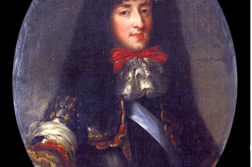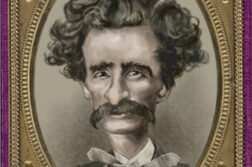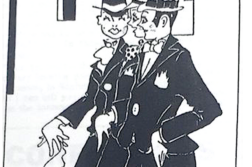WHEN I first read Larry Kramer’s “Queer Theory’s Heist of Our History” in this journal’s September–October 2009 issue, I felt attacked, and on a surprisingly personal level. I was actually less angry at what Kramer was saying—he’s been saying it for years—than at where he was saying it: in a journal targeted to gay and lesbian intellectuals. I was angry that Kramer was blaming a body of work that I love for a combination of homophobia, obfuscation, and theft. I was furious to see Kramer attacking Michel Foucault and Judith Butler without even attempting to understand or make visible their complex and useful bodies of thought. But as my anger subsided, I considered Kramer’s frustrations, and began returning to his earlier works. I suspect that many people are sympathetic to Kramer’s claim that queer theory is “prissy incomprehensible imprecise gobbledygook” (Kramer, 2005).
Kramer’s main argument in the GLR article that “homosexuality has been pretty much the same since the beginning of history.” In his 1978 novel Faggots, Blaze Sorority (a penname) writes twice monthly features for “the faggot world’s very own and special paper,” the Avocado. In one of his columns, Sorority contemplates homosexuality’s past as a source of inspiration:
[L]et us try to summon up inspiration from our illustrious ancestors, those forefathers who had they opened their mouths, would have made our cause great a few years earlier, had they had the guts to cry out “here I come, ready or not” to all and sundry, the world at large and stood there long enough to have their toesies counted, would not have placed us in the mess we’re in today. I am of course talking about Leonardo and Michelangelo and Napoleon (who had a small one) and Socrates and Aristotle…
The list continues for 115 names.







